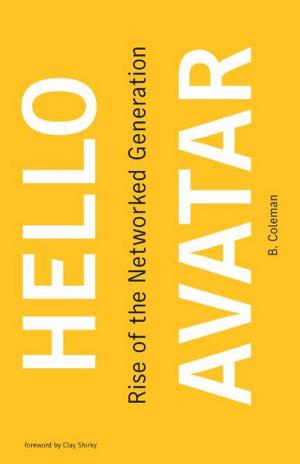Streetlights and Shadows
Searching for the Keys to Adaptive Decision Making
Business & Finance, Management & Leadership, Management Science, Nonfiction, Health & Well Being, Psychology, Cognitive Psychology| Author: | Gary A. Klein | ISBN: | 9780262258340 |
| Publisher: | The MIT Press | Publication: | September 30, 2011 |
| Imprint: | A Bradford Book | Language: | English |
| Author: | Gary A. Klein |
| ISBN: | 9780262258340 |
| Publisher: | The MIT Press |
| Publication: | September 30, 2011 |
| Imprint: | A Bradford Book |
| Language: | English |
An expert explains how the conventional wisdom about decision making can get us into trouble—and why experience can't be replaced by rules, procedures, or analytical methods.
In making decisions, when should we go with our gut and when should we try to analyze every option? When should we use our intuition and when should we rely on logic and statistics? Most of us would probably agree that for important decisions, we should follow certain guidelines—gather as much information as possible, compare the options, pin down the goals before getting started. But in practice we make some of our best decisions by adapting to circumstances rather than blindly following procedures. In Streetlights and Shadows, Gary Klein debunks the conventional wisdom about how to make decisions. He takes ten commonly accepted claims about decision making and shows that they are better suited for the laboratory than for life. The standard advice works well when everything is clear, but the tough decisions involve shadowy conditions of complexity and ambiguity. Gathering masses of information, for example, works if the information is accurate and complete—but that doesn't often happen in the real world. (Think about the careful risk calculations that led to the downfall of the Wall Street investment houses.) Klein offers more realistic ideas about how to make decisions in real-life settings. He provides many examples—ranging from airline pilots and weather forecasters to sports announcers and Captain Jack Aubrey in Patrick O'Brian's Master and Commander novels—to make his point. All these decision makers saw things that others didn't. They used their expertise to pick up cues and to discern patterns and trends. We can make better decisions, Klein tells us, if we are prepared for complexity and ambiguity and if we will stop expecting the data to tell us everything.
An expert explains how the conventional wisdom about decision making can get us into trouble—and why experience can't be replaced by rules, procedures, or analytical methods.
In making decisions, when should we go with our gut and when should we try to analyze every option? When should we use our intuition and when should we rely on logic and statistics? Most of us would probably agree that for important decisions, we should follow certain guidelines—gather as much information as possible, compare the options, pin down the goals before getting started. But in practice we make some of our best decisions by adapting to circumstances rather than blindly following procedures. In Streetlights and Shadows, Gary Klein debunks the conventional wisdom about how to make decisions. He takes ten commonly accepted claims about decision making and shows that they are better suited for the laboratory than for life. The standard advice works well when everything is clear, but the tough decisions involve shadowy conditions of complexity and ambiguity. Gathering masses of information, for example, works if the information is accurate and complete—but that doesn't often happen in the real world. (Think about the careful risk calculations that led to the downfall of the Wall Street investment houses.) Klein offers more realistic ideas about how to make decisions in real-life settings. He provides many examples—ranging from airline pilots and weather forecasters to sports announcers and Captain Jack Aubrey in Patrick O'Brian's Master and Commander novels—to make his point. All these decision makers saw things that others didn't. They used their expertise to pick up cues and to discern patterns and trends. We can make better decisions, Klein tells us, if we are prepared for complexity and ambiguity and if we will stop expecting the data to tell us everything.















